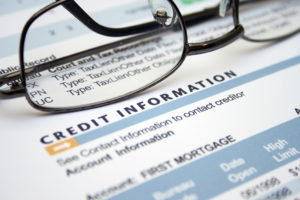Improve your credit score – Improving your credit score is not an overnight thing, and it may take months or even years to build a fantastic score, especially if you’ve made bad decisions that hurt your credit history.
We all make mistakes, and it is okay to make them, but some errors result in lowering your credit score and the need arises to improve your credit score.
In the past, credit scores only impacted your borrowing capacity, but nowadays, its value and utility have tremendously increased.
Some employers check prospective employees’ credit scores before offering the job.
Financial institutions also keep a check on your credit score for various reasons.
Before getting into how you can improve your credit score, let’s understand what affects it.
Whats Coming Up? - Table Of Contents
Factors That Determine A Credit Score
Five determinants impact your FICO score.
They are –
Total Debt
Although your total debt (the amount you owe) affects your credit score, it sheds more light on your credit utilization ratio.
It is based on available credit in all your credit accounts and credit cards at a particular point in time.
It is the ratio of your available credit to your total credit limit.
The higher your available credit on your credit limit, the better it is for you when trying to improve your credit score.
Payment History
Your payment history has the most impact on your credit score as it determines 35% of your total score.
Timely payments are essential to maintaining a good score. If you miss a payment even once, by more than 30 days, then it will affect your credit score negatively.
In addition, major payment issues like charge off, bankruptcy, and tax liens can drown your credit borrowing capacity and make it very difficult to get approved for any credit.
Age of Credit History
The age of your oldest credit account and the average age of all your accounts is 15% of your credit score.
Having a higher credit account age proves your experience in handling credit over the years.
Opening new accounts in a short period decreases the average age of your account, which is why you should avoid opening numerous credit accounts when trying to improve your credit score.
Credit Mix
Having various kinds of credit proves your capability of managing multiple types of credit.
There are two types of credit accounts – Revolving accounts and installment loans.
However, you should avoid taking different kinds of credit only to improve your credit score.
Credit Mix contributes to 10% of your credit score.
Credit Inquiries

Inquiries hold up to 10% of your credit score.
Whenever you apply for something that requires a credit check, your credit report gets updated with your credit-based application called a hard inquiry.
The goal is to keep the credit-based application to a minimum to avoid a negative compounding effect that would lower your credit score and hurt you when trying to improve your credit score.
Non-determinants Of Credit Score
There are few factors that people assume affect their credit score, but they do not.
For example, your employment status and income may affect your ability to get approved for credit, but it has no direct effect on your credit score or when trying to improve your credit score.
Likewise, age, gender, marriage, and debit card usage are also non-determinants of your score.
Ways To Improve Your Credit Score In Short-Term
It is improbable that you’d be able to bring any massive changes when trying to improve your credit score in just 30 days, but it is possible to improve your credit score in that time.
Here are a few ways you can improve your credit score a little faster.
Correcting Mistakes On Your Report
Here are steps you can follow to rectify errors in your credit report and help improve your credit score:
- Get a copy of your credit report from a company such as Experian
- After getting your report, identify the default accounts with a negative impact on your report. The things to look for are delays in payments, credit inquiries, and collection accounts.
- You should inform and file a complaint to the credit bureau if any inaccuracies are found in the report. You will be required to provide adequate documents within 30 days supporting your complaint of inaccuracy and error in the credit report.
- A dispute can be filed through the internet, by mail, or by a phone call.
- If you’ve been a customer for years, you might be able to get late payments removed from your report by providing a valid reason for the delay, and they may end up removing it as an act of goodwill.
Authorized User
If you have a family member with an excellent credit history, you can improve your credit score by asking them to get you added to the existing account as an authorized user.
The credit bureaus will add the entire history of that account to your credit report, resulting in a help when trying to improve your credit score.
Becoming an authorized user may lead to a rise in your available credit, thereby lowering the debt to income ratio.
Paying Off Debt
The credit utilization ratio is the ratio of available credit to the credit limit—the rate changes when you pay off the debt of any of the credit accounts you hold.
Paying off a large credit amount in a short period will improve your credit score rapidly as the credit utilization ratio contributes to 30% of your credit score.
Negotiations

Default in bill payments can leave a significant blemish on the credit report.
However, you can still do something about it.
Negotiating with the creditor to accept partial payment for a debt in collections and reclassifying the debt as paid is one way to do it.
The creditor may offer a counteroffer as they are not obligated to take the partial payment.
If they agree, only make the partial payment once a written agreement of the negotiation is developed and signed.
Sometimes, long-term customers will get the benefit of goodwill adjustment from their creditors.
They forgive late payments for old customers, which leads to a rise in credit scores and obviously a great help when looking to improve your credit score.
Request For A Credit Limit Increase
Requesting an increase in your credit limit from an established creditor will also lead to a change in the credit utilization ratio and elevate your credit score.
Ways To Improve Your Credit Score In Long-Term
Maintaining a good credit score requires consistency, discipline, and time.
Although there are a few quick ways to alter your score, bad credit scores take years to recover.
Here are three ways to maintain and improve credit scores in the long term.
Making Minimum Payments
To prevent lowering your score, pay a minimum amount, usually of the interest on the principal amount.
Variation In Kind Of Debt
Having only unsecured loans can make a creditor doubt your payback ability, reducing your chances of getting approved for auto-loan, student loan, mortgage, etc.
A good mix of secured and unsecured loans helps in increasing the credit score of a borrower.
Maintain Low Debt To Income Ratio
A creditor may refrain from approving a loan if the borrower already has multiple liabilities to pay off with a limited income.
Therefore, to maintain an excellent debt to income ratio, avoid additional borrowings, and focus on clearing previous credit.
Borrowers can apply for a debt consolidation loan to clear previous debt with a higher rate of interest.
Use Your Credit Card Like A Debit Card
A credit card is a fantastic financial tool if used smartly.
As much as it is a boon, a credit card can also be a curse if not utilized correctly.
People often tend to use a credit card like there’s no tomorrow to pay the money back.
Using credit cards with higher rates of interest should be avoided. A credit card’s payment cycle should be appropriately timed with your sources of income.
Owning multiple credit accounts also lowers your credit score as it lowers the age of your credit history.
A credit card issuer uses sales associates whose sales tactics persuade you to believe that you need another credit card, but that is not true most of the time.
How To Use Your Credit Cards To Benefit Yourself And Improve Your Credit Score?
The foolish ways to use a credit card are not a mystery to any of us.
You keep swiping your card for unnecessary things and rack up fees by missing payments and sabotaging your credit score.
But a card, if used smartly, can be used to your advantage.
Here’s how:
To Build A Credit History
Credit cards are beneficial to improve weak credit history.
Two types of credit cards are issued – Secured and unsecured credit cards.
A secured credit card requires a refundable deposit, mainly the same amount as the credit limit, which works as collateral.
On the other hand, unsecured credit cards are issued based on the borrower’s creditworthiness.
Therefore, making timely payments establishes a reliable borrowing pattern and improves credit scores.
Paying Off Debt

A credit card can help you pay off debt if used strategically.
Many credit cards offer an introductory period where little or no interest is used.
If you pay off your debt with the credit card in that period and pay off your credit card bill in full before the introductory period, then you’d be saving yourself from a bundle of interests.
Earn Rewards By Spending
With cashback, vouchers, discounts, and offers, credit cards benefit you with numerous rewards when making payments for flights, hotels, online shopping, etc.
The kind of cards and the rewards you would get depends on your lifestyle choices.
However, with perks and rewards, people tend to make unnecessary spendings to get rewards.
Such rewards promote the habit of spending and hinder our saving habits.
To Protect Yourself From Unethical Merchants
One of the underrated perks of purchasing something with a credit card is the protection it provides if a merchant fails to offer you goods or services after you’ve made the payment with your card.
All you have to do is request a chargeback from your credit card issuer.
And a temporary refund is initiated to your account, which becomes permanent after the issuer has verified your claim.
Sign Up Bonus
To beat the cutthroat competition, credit card companies offer extra benefits and rewards to attain new customers.
Many issuers provide points, miles, and cashback if you choose their service.
At times, the signing up bonus is enough to book a flight free of cost.
Monitor Your Activities
You can check your credit card activities in a few minutes over the internet.
Companies now provide a mobile app that allows you to check your spending history quickly.
Monitoring your card usage assists you in understanding your spending patterns, your payment cycles and lets you figure out what works best for you.
You can even choose to receive your bills online rather than through mail by signing up for paperless billing statements.
Self-Discipline Is The Key To A Good Credit Score
You should not use a credit card as a magic card that helps you purchase anything you want.
Effectively using a credit card requires self-discipline.
It enables you to refrain from spending on things you don’t need or using your card excessively when you know that you won’t be able to repay in full by the end of the month.
With all the offers that credit issuers keep offering, it is easy to get tempted and have multiple cards that you do not necessarily need.
You Cannot Repair Credit Overnight
Credit Repair companies often advertise with the promise of giving fast results and improving your credit score quickly.
However, all that they can do about your credit report, you can do yourself.
Such companies offer to improve your credit score by disputing data on your report.
However, harmful data that is true can’t be removed by disputing them.
The best way to have a good credit score is by developing healthy payment habits and consistently sticking to those habits in the long term.
Bottom Line
A good credit score makes it much easier to get approved for various forms of credit, such as home loans, car loans, and mortgages.
Mistakes in payments are bound to happen in the long term, but actively taking measures to recover from the consequences of those mistakes is the key.
If your credit score is not where you would want it to be, you need to develop healthy payment habits to improve your credit score positively.
